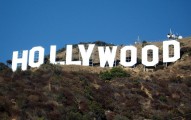Are DAOs About to Revolutionize the Film and TV Industries?
April 27, 2022
Decentralized autonomous organizations (DAOs) are riding the crypto wave, with some asking if their notion of distributed decision-making marks an evolution from crowdfunding through platforms like Kickstarter and Indiegogo to crowdsourced creativity on a blockchain. It’s already been demonstrated that tokens can be used for smart contracts and to designate property ownership. The film and television industries are just becoming aware of the potential impact of NFTs, which have already disrupted the worlds of art and gaming, driving creator economies. The wisdom of the crowd might be tapped to find fresh stories, too.
“Will 2022 be Hollywood’s Year of the DAO?,” VentureBeat asks, noting that “the potential to democratize and decentralize decision-making and support, through the utilization of the DAO structure, will empower anyone, not just powerful producers and studios, to possibly tap the next Spielberg or Tarantino on the shoulder.”

A DAO is “a group of people who agree to abide by certain rules for a common purpose,” and those rules “are written into the code of the organization via smart contracts — algorithms that run when certain criteria are met,” PC Magazine explains.
The DAO participants buy into the organization, which can have any purpose and functions without a centralized governing authority. “DAOs operate on a flattened hierarchy; that is, everyone has a stake and no one person owns or controls the entire thing the way a conventional CEO would,” notes PC Magazine.
DAOs are totally digital, operating online using blockchain ledgers to document group activities, whether that’s currency changing hands or creative decisions. “Examples of DAOs include everything from a group of crypto investors collecting NFTs called PleasrDAO to Friends With Benefits, a DAO acting as a social club/crypto publication/artist incubator,” PC Magazine reports.
“Web3 advocates think DAOs are the next logical step in the business world, as all the major decisions of running a company can be divided among the whole organization and run automatically,” which would in theory eliminate “bad or self-interested decisions” by centralized leaders.
Likening DAOs to the traditional Hollywood test screening audiences, who nominally had a pre-release vote as to what worked and what didn’t, VentureBeat posits “a codified DAO would be more empowering and liberating for both filmmakers and audiences. The potential of NFTs offer the ability not only for contributors to feel like their ‘tithing’ to the fan cult of their choice, but to create real ownership in a film property, both creative and financial.”
The Harvard Business Review says “instead of working from a central office all year long and having two to four weeks off, most DAO contributors will likely work remotely, bond in virtual social spaces such as Cryptovoxels or The Sandbox, and for several days or weeks a year, get together in real life for inspiring conferences and retreats.”
Acknowledging the DAO movement “is still in its infancy” and has challenges related to governance and trust,” HBR concludes that with the adoption of Web3, “proliferation could happen sooner rather than later.”

No Comments Yet
You can be the first to comment!
Sorry, comments for this entry are closed at this time.